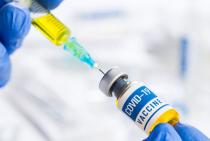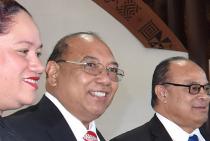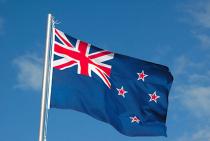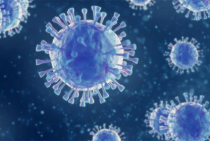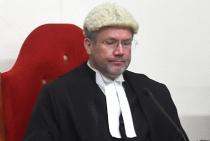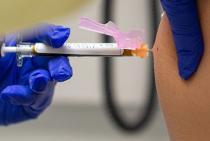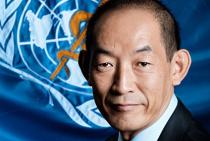Laws requiring people to be vaccinated if they are going to be in places where they could infect other people are restricting one kind of freedom in order to protect the freedom of others to go about their business safely. Car crash survivors who were injured because they were not wearing seat belts recognize and regret their irrationality – but only when it is too late. We are now seeing a very similar situation with vaccination ...too many people make decisions that they later regret. They cry. And they say they didn't know. By Peter Singer.
You are here
Results for Opinion
Thursday 5 August 2021
Melbourne, Australia
Tuesday 13 July 2021
Rome, Italy
Humanity is drifting into increasing danger. Climate change is accelerating; biodiversity is plummeting; hunger and extreme poverty are rising; and the gap between rich and poor is widening. These trends threaten not only human health and livelihoods, but also global peace and stability. Reversing them will require a shared effort to rebuild, and even upgrade, the systems on which we all depend – beginning with the global food system. By Gilbert F. Houngbo
Wednesday 30 June 2021
Austin-Texas, USA
Outside the rich-country bubble, the virus can spread, mutate, sicken, and kill. One obvious solution is to get the hoarded stockpile of vaccines into arms all around the world - but there have been only "paltry half-measures and insufficient gestures". For now, where this is heading is obvious. The US and Europe are offering crumbs, protecting their billionaires, their pharmaceutical lobbies, and their politicians’ campaign contributions. Meanwhile, China and Russia have other ideas – and the capacity to realize them. So, before too long, when the back of this pandemic is finally broken, the world will have fresh evidence about who is reliable and who is not. - By James K. Galbraith.
Sunday 13 June 2021
1 comment
Nuku'alofa, Tonga
The Lavulavus’ court cases do not enhance the government’s reputation and the way the political elite in the Kingdom operate. Sad to say Prime Minister, that in your attempt to make light of the Lavulavus’ guilty verdict, you cunningly brought to the attention of the public and the world, that other schools were involved in these criminal activities. It is now your duty as the PM of Tonga to get a full investigation going. You owe it to all foreign aid donors, to explain what Tonga has done with the funds; and you owe it to every school that you have now accused, by giving them a chance to clear their names and set the record straight. - Senolita Swan
Thursday 27 May 2021
Cambridge, United Kingdom
For over a century, the size and role of the state has been a hotly debated issue, and is so once again in the wake of COVID-19. With the world reeling from the pandemic and struggling to address complex systemic issues such as climate change, it is vital that we return to the fundamental question of politics: how a government should be. If we don’t ask it – and ask it often – we risk ending up with a government we would never choose. By Jaideep Prabhu
Thursday 20 May 2021
NTU, Singapore
With the US-China strategic competition intensifying, New Zealand navigates these tricky geopolitical waters and pursues its ‘independent’ foreign policy even at the risk of offending its Five Eyes partners. ...It also takes into account critical views of its intelligence operations, especially among its close partners in the Pacific. New Zealand with its main signals facility on the South Island, is responsible for gathering information in the South Pacific. By Anne-Marie Schleich (RSIS).
Friday 14 May 2021
Nuku'alofa, Tonga
‘Uluaki, ko e ‘ikai lava ‘e he Fale Alea ‘o fakahoko hono fakatongia tefito, ko hono sivisivi’i e ngaue ‘a e pule’angā. Koeha leva hono ‘uhinga ‘oku hoko ai ‘a e palopalema koenī? -‘Inoke Fotu Hu’akau.
Thursday 13 May 2021
Geneva, Switzerland
With people everywhere struggling to preserve their livelihoods under the constant threat of the coronavirus, it has become clear that this pandemic is more than a health emergency. It has become a global whole-of-society crisis. In this context, one of our greatest fears is that after decades of improvement, future generations’ prospects have suddenly plummeted. Some regions are experiencing a reversal of gains achieved in the past 20 years. It will be many months – even years – before vaccines against current and future variants of the virus are accessible to everyone. By Palitha Abeykoon, Maha El Rabbat, David Nabarro
Monday 10 May 2021
New York, USA
The combination of export bans, hoarding, and supply shortages has meant that COVAX has so far managed to deliver only one in five of the Oxford-AstraZeneca doses that were supposed to arrive in countries by the end of this month. At this rate, advanced economies will be able to vaccinate their entire populations before many low-income countries even begin their vaccine rollout. By Rosalind McKenna
Monday 3 May 2021
Cambridge-MA, USA
The world’s current vaccination plan is very much “broke,” and nobody seems to be fixing it, despite the disastrous consequences for lives, livelihoods, and the global economy. This was supposed to be the year of recovery. But, from an epidemiological standpoint, it is shaping up to be worse than 2020, and current dynamics suggest that 2022 will be no better. It does not have to be this way. But getting onto a better path will require strong global leadership. The world has multiple effective vaccines available. But it is not moving nearly fast enough to administer them. - By Ricardo Hausmann.
Monday 19 April 2021
London, United Kingdom
The late Prince Philip, Duke of Edinburgh and husband to the queen, was long celebrated (or parodied) for his distinctive personality. Before his death on April 9, at the age of 99, he was the United Kingdom’s grand, grumpy, and eccentric uncle – a man totally out of step with the modern world. To take just one of many notorious examples, Philip couldn’t understand why servicemen today would need therapy. Back in World War II, he observed, “We didn’t have counselors rushing around every time somebody let off a gun, asking ‘Are you all right? Are you sure you don’t have a ghastly problem?’ You just got on with it.”
Friday 26 March 2021
Nuku'alofa, Tonga
In light of recent media reports that the Courts are imposing more suspended sentences due to overcrowding in Tonga's prison system, the following clarification is provided for the information of the public and better understanding: 1. The Courts do not suspend sentences because of prison overcrowding. 2. Provision of adequate prison facilities and related services is the responsibility of the Executive Government. 3. Upholding the rule of law and administering justice in the Kingdom is the responsibility of the Judiciary and the Courts. .... Michael Whitten QC, Lord Chief Justice of the Kingdom of Tonga.
Thursday 18 March 2021
London, United Kingdom
It is curious that presidents possess such unaccountable power at all. America’s founders rejected absolute monarchy and its trappings (such as noble titles), and yet the pardon power is descended from just such a monarchical power, the royal prerogative of mercy. Trump’s blatant violation of the original intent of the presidential pardon was just one of many challenges he posed to the political system established by the US Constitution. Johnson displays similarly worrying traits. Faced with such threats, courts and legislatures need to recall their true purpose: preventing the unchecked exercise of executive power. By Nicholas Reed Langen.
Tuesday 16 March 2021
Nuku'alofa, Tonga
Personally, I place big question marks at the choice of some of the businesses mentioned in this article. I do not have the experience with them myself that they seriously try to avoid or reduce using plastic bags. But aside from that, those who are really serious have my full support. If used wisely plastic has enough advantages in order not to want to do away with it. It is de laziness of people which is the problem. -Firitia.
Monday 15 March 2021
Sydney, Australia
‘Oku tatala ma’u pe e pulonga ‘o e fifili he taimi ‘oku fasitanunu e ngaahi kaupeau he halafononga ‘o e tangata ha vaaita ‘o e lau ‘ene sivilaise. ‘Oku tu’ula ai ha fifili kiha felave’I ‘o e ngaahi peau faka-mamani-lahi ‘oku ha ho’o kupenga-ope he mahina ‘uluaki ‘o e 2021. Ka, ‘oku tohoaki e tokanga kiha kaveinga ‘e ua kuo ofongi ‘e he Matanga Tonga. ‘Uluaki ko e “Corruption kills people - Hanga 'e he Faihala 'o Faka'auha 'a e Fonua”; ua, ko e “Covid-19” ‘I hono ngaahi fotunga kehekehe. Fakatou’osi kinaua ‘oku na lave’i e ‘Otu Tonga. - 'Inoke Fotu Hu’akau.
Monday 1 March 2021
Nuku'alofa, Tonga
The debate over whether or not to turn to the deep sea to secure the resources we need for a low-carbon future has generated much public interest, but it is critical that this debate is founded upon sound science and the best data currently available. As such, I would like to correct a number of misrepresentations in the letter of Feb. 25 from the Civil Society Forum of Tonga. - Christina Pome'e, Tonga Offshore Mining Ltd.
Thursday 25 February 2021
1 comment
Nuku'alofa, Tonga
Deep Sea Mining (DSM) of polymetallic nodules in the Pacific Ocean is not essential for a renewables revolution. There would be massive amounts of waste produced and discharged to the ocean. The discharge plumes may also be quite toxic, with metals and processing agents. As Pacific Islanders already know - what happens in the deep doesn't stay in the deep. - Pelenatita Kara, Civil Society Forum of Tonga.
Wednesday 24 February 2021
Kuala Lumpur, Malaysia
Vaccinating the world against COVID-19 is one of mankind’s most critical non-wartime efforts ever. Many countries have developed ambitious, politically sensitive, and carefully sequenced vaccination plans, but executing them successfully will be a challenge. To succeed, policymakers should build three realistic assumptions into their vaccination planning for 2021 and beyond. First, delays are inevitable. By Swee Kheng Khor
Monday 22 February 2021
Canberra, Australia
East Asia Forum: The United States abandoned economic leadership in Asia four years ago. Rather than promote and strengthen the multilateral institutions and frameworks that underpin Asia’s prosperity, the United States under President Trump began systematically undermining them: from the WTO, WHO and Paris Agreement, to military alliances with Japan and South Korea, bilateral trade ties and cooperation in regional forums. What can Biden do to instil confidence in a region still battered and bruised from four years of the Trump administration waywardness? - By the Crawford School of Public Policy, ANU.
Friday 12 February 2021
Suva, Fiji
We know many people are asking when vaccines will be available in Pacific countries. We anticipate that in 2021, demand will vastly exceed supply. But this doesn’t mean we should just sit and wait. PICs now need to focus on preparing, so they are ready when the first vaccines do arrive. This includes starting pre-registration for priority groups. It means making sure the systems are in place and working, for delivering vaccines and monitoring their safety and effectiveness. This requires investments to strengthen health systems, which will bring benefits beyond COVID-19. By Dr Takeshi Kasai.




